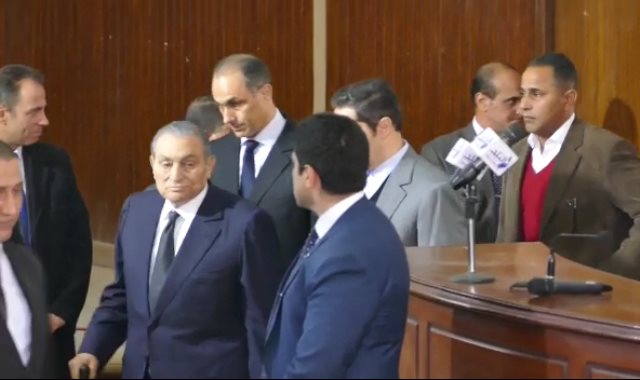By participating in direct peace talks between Israel and the Palestinian Authority (PA) slated to begin Thursday, President Hosni Mubarak is seeking the continuation of US support for his presidency–or for the succession of his son Gamal to the top post–according to a group of US political experts at a conference devoted to Egypt's political future held recently by the Carnegie Endowment for International Peace.
The experts, who included Carnegie Endowment professors as well as experts from other international organizations, described independent Egyptian presidential hopeful Mohamed ElBaradei as “a credible opposition leader whose agenda is not associated with foreign policy." They also described Egypt’s Muslim Brotherhood opposition group as being "more capable than any other opposition movement to mobilize the public."
During the discussion, experts also discussed Egypt's longstanding Emergency Law and the sincerity–or lack thereof–of the United States’ commitment to promote democracy in Egypt.
Robert Kagan, senior associate at the Carnegie Endowment, said the Middle East peace process was no less important than what was happening in Egypt, particularly in light of the US influence on the “transitional period” Egypt was currently passing through.
"There is no doubt the US will have a significant influence on the region during this period," said Kagan.
He went on to say that everyone was waiting to see the US reaction to the prospect of a Gamal Mubarak presidency, and whether Washington would allow such a development to take place given the absence of free and fair Egyptian elections.
"Everyone in Egypt and surrounding regions will see this as the US giving its blessing to this latest chapter in Egypt's long history of dictatorship," he said. "We must therefore be cautious when dealing with these current events.”
He went on to say that the elder Mubarak's participation in upcoming peace talks between Israel and the PA gave him "significant influence" in the region.
Kagan said Mubarak was essentially telling everyone, "If you want a peace process, or strategic stability in the Middle East, then you have to support me."
He also pointed out that the US “needed” Mubarak on certain issues, noting that the Egyptian president had been “useful” to the US in regards to the peace process and regional stability.
Tom Malinowski, Washington advocacy director for Human Rights Watch and expert in US foreign policy, said “significant changes” had taken place in Egypt within the past five years, most importantly, the appearance of a credible opposition leader such as ElBaradei.
Michele Dunne, a senior associate at the Carnegie Endowment, said the upcoming parliamentary elections would represent the “true test” for the Obama administration vis-à-vis its stated commitment to promote Egyptian political reform.
Translated from the Arabic Edition.



